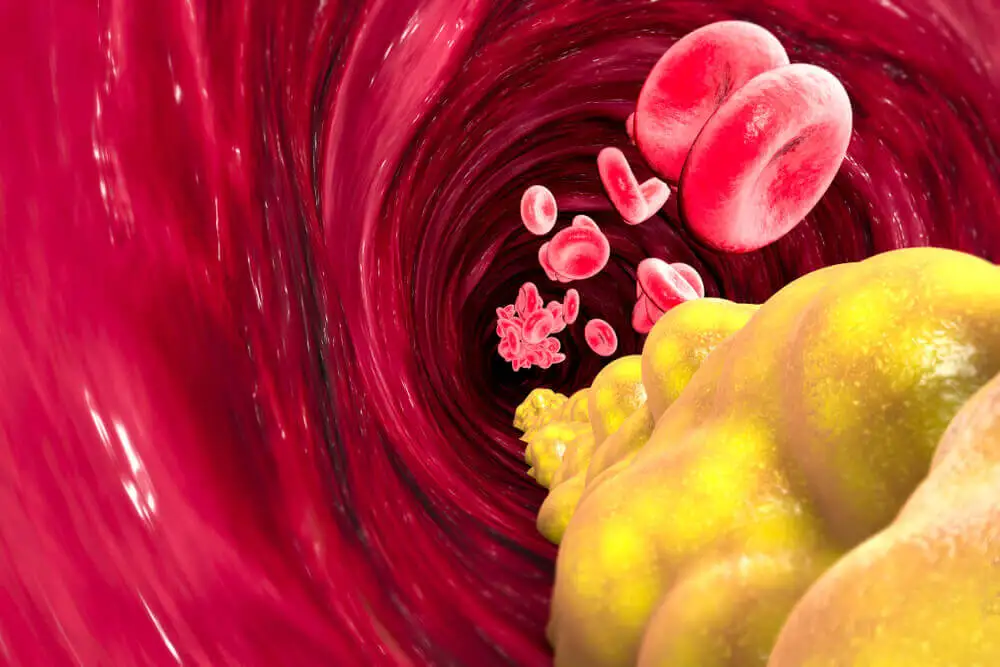Red and White Meat Affect Cholesterol in the Same Way, Studies Show


Written and verified by the nutritionist Saúl Sánchez Arias
Having high cholesterol has been one of people’s main concerns for years, leading to questions about the characteristics of red and white meat in this respect. However, the most recent research suggests that this factor isn’t determinant as regards the risks of cardiovascular disease.
It should be noted that cardiovascular disease has a very complex physiology. However, experts affirm that one of the underlying mechanisms that may determine its prognosis is inflammation. This process increases the possibility of developing atheromatous plaques.
What do the studies say about red and white meat and cholesterol levels?
The first thing to be clear about is that red and white meat don’t seem to have a determining effect on cholesterol levels. According to a study published in The American Journal of Clinical Nutrition, consuming red meat on a regular basis is not related to a significant increase in cholesterol levels or blood pressure. Nor does it increase the risk of cardiovascular pathology.
Similarly, research published in the journal Advances in Nutrition confirms that eating a paleolithic diet isn’t harmful to heart health. Nor does it generate a significant alteration of the lipid profile.
It should be noted that this type of diet prioritizes the intake of proteins and fats, together with products that haven’t been manipulated artificially.
There are even articles that refute the myth that the regular intake of eggs or products derived from them is capable of influencing the risk of heart attack or cardiovascular problems. For many years, their intake was limited out of fear.
Therefore, we can affirm that all these foods (red and white meat, as well as eggs) affect cholesterol levels in the same way, and have a very low impact on them. In short, they don’t affect overall cardiovascular risk.

You may also be interested in: Which Meats Are the Least Fattening?
What is the role of lipoproteins in the body?
It’s important to understand what cholesterol is and what role it plays in the body. These particles are called lipoproteins and are responsible for transporting substances through the blood, generally fats.
There are 2 types of lipoproteins: HDL and LDL. The former have been considered good, since they transport fats from the tissues to the liver. However, LDL were traditionally known as bad cholesterol and had the opposite transporting effect.
It has recently been demonstrated that LDL particles can be broken down into smaller groups, the most important of which is VLDL cholesterol and its oxidized fraction. Seemingly, it is these latter elements that are most closely related to cardiovascular accidents, as they tend to agglutinate and create atheroma plaques.
Get to know more: Is VLDL Cholesterol Harmful?
Consequences of high cholesterol in the body
As we have said, having high cholesterol isn’t always negative, but it is essential to analyze the proportion of each of the lipoproteins to evaluate the overall state of health. It’s actually more life-threatening to have cholesterol levels that are too low than too high.
The key here is the proportion of oxidized VLDL particles circulating in the blood. It’s beneficial to reduce this group of elements as much as possible.
There are a number of strategies that can be used to achieve this. One of them is to consume foods with high antioxidant capacity, such as vegetables, in the diet. At the same time, it will be key to avoid the consumption of trans-type lipids.
How can cholesterol levels be reduced?

If, for any reason, cholesterol values are too high in a blood test, it may be beneficial to reduce them. This is because oxidized VLDL particles cannot be distinguished. In this sense, applying a series of dietary changes can reduce total cholesterol and this will include this class of lipoproteins.
To achieve a beneficial impact on the lipid profile, it’s advisable to prioritize the consumption of fresh foods over industrial ultra-processed foods. Above all, it’s advisable to eat oily fish and vegetables, as they have anti-inflammatory and antioxidant potential.
A high intake of fiber could also reduce total cholesterol levels. This is because the substance blocks the absorption of dietary cholesterol at an intestinal level.
However, there’s also an endogenous synthesis of the particles that is counterbalanced by the absorption of the nutrient from our food intake, so this effect is disputed. In fact, one of the reasons for high cholesterol is usually genetic.
Red and white meat are not determinant in cardiovascular risk
As you have seen, both the consumption of red and white meat don’t significantly alter cholesterol levels. However, these levels can be increased if the food is fried, as, in this case, trans acids are created.
Prioritizing less aggressive cooking methods, including vegetables frequently into your diet, and avoiding ultra-processed foods are all key to improving cardiovascular health. Remember that improving lifestyle habits is more of a priority than reducing cholesterol levels.
All cited sources were thoroughly reviewed by our team to ensure their quality, reliability, currency, and validity. The bibliography of this article was considered reliable and of academic or scientific accuracy.
- O’Connor LE, Kim JE, Campbell WW. Total red meat intake of ≥0.5 servings/d does not negatively influence cardiovascular disease risk factors: a systemically searched meta-analysis of randomized controlled trials. Am J Clin Nutr. 2017 Jan;105(1):57-69. doi: 10.3945/ajcn.116.142521. Epub 2016 Nov 23. PMID: 27881394; PMCID: PMC5183733.
- Ghaedi E, Mohammadi M, Mohammadi H, Ramezani-Jolfaie N, Malekzadeh J, Hosseinzadeh M, Salehi-Abargouei A. Effects of a Paleolithic Diet on Cardiovascular Disease Risk Factors: A Systematic Review and Meta-Analysis of Randomized Controlled Trials. Adv Nutr. 2019 Jul 1;10(4):634-646. doi: 10.1093/advances/nmz007. Erratum in: Adv Nutr. 2020 Jul 1;11(4):1054. PMID: 31041449; PMCID: PMC6628854.
- Blesso CN, Fernandez ML. Dietary Cholesterol, Serum Lipids, and Heart Disease: Are Eggs Working for or Against You? Nutrients. 2018 Mar 29;10(4):426. doi: 10.3390/nu10040426. PMID: 29596318; PMCID: PMC5946211.
This text is provided for informational purposes only and does not replace consultation with a professional. If in doubt, consult your specialist.








